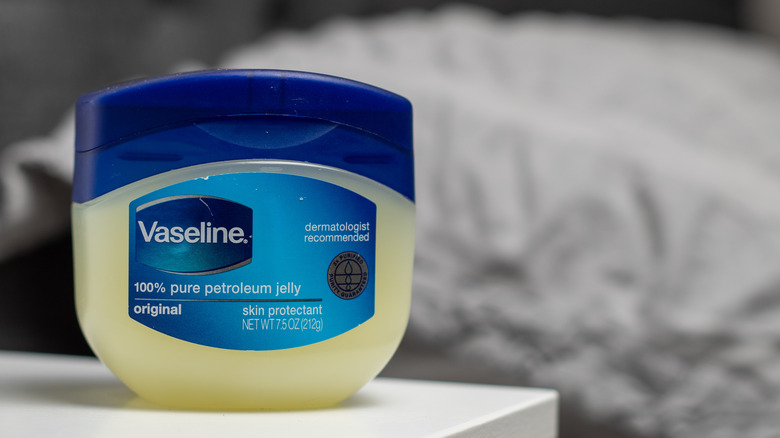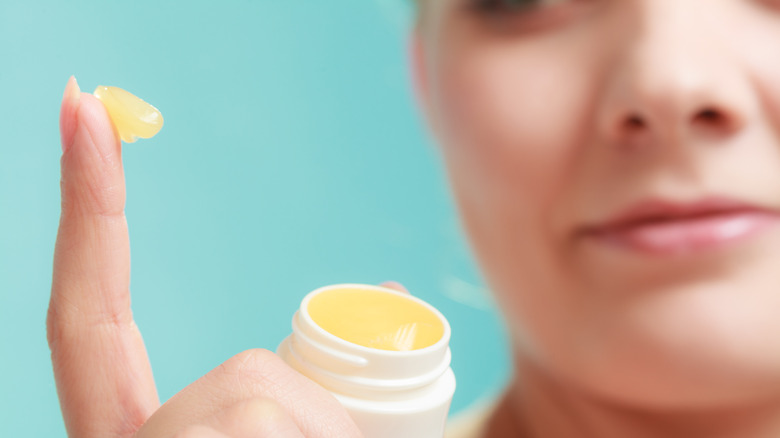When You Use Too Much Vaseline, This Is What Happens
For over a century, people have been using petroleum jelly for anything from a healing balm for skin conditions, to a base for makeup. In fact, initial interest in petroleum jelly use occurred in 1865 when 22-year-old Robert Chesebrough noticed a waxy substance building up on the oil well equipment in the oilfields where he worked (via American Oil and Gas Historical Society). After laboratory experimentation on the healing properties of the substance, he patented Vaseline in 1872. So why now, almost 150 years later, are doctors warning that too much Vaseline may actually be harmful?
When winter temperatures set in, many of us reach for something to soothe our dry, itchy skin. Vaseline, made of refined petroleum, has a jelly-like consistency that makes it easy to apply (via Healthline). Additionally, Vaseline claims to have removed all of the harmful substances from its petroleum jelly, using only high-grade ingredients. However, there is still the possibility that other brands may have different amounts of these safe ingredients.
Keep Vaseline away from this body part
In general, Vaseline acts as a barrier, trapping moisture in the skin and keeping harmful substances like dirt or bacteria out. This allows cuts and burns to heal without getting infected. However, some people use Vaseline internally, like to keep the insides of the nostrils from drying out. While this typically isn't harmful, in rare cases, using too much Vaseline in the nose can be dangerous (via Mayo Clinic).
Like natural nasal secretions, Vaseline applied inside the nostrils will eventually make its way into the throat and be swallowed. In some cases, it can also be inhaled and travel into the lungs. There, the lipids in the petroleum jelly can build up to dangerous levels. Eventually, they can cause an uncommon, but life-threatening, condition known as lipoid pneumonia. Symptoms of this rare disease are similar to those of typical pneumonia, and can include cough and chest pain. In order to avoid lipoid pneumonia, doctors recommend using something other than Vaseline to keep the nasal passages moisturized. Instead, consider using humidifiers and saline sprays as safe alternatives.


